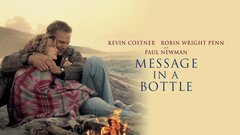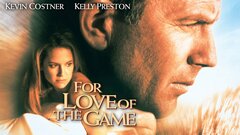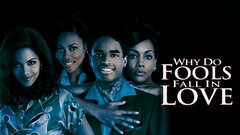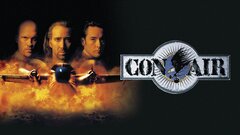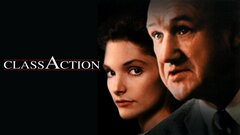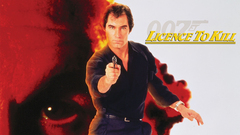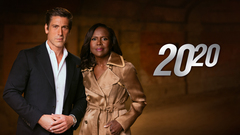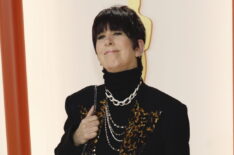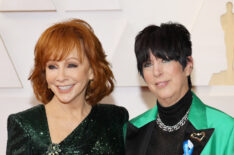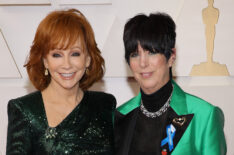Renowned for her epic romantic ballads, Diane Warren has been one of the most prolific and successful female songwriters of all time, having penned hundreds of chart hits beginning in the early 1980s. A Grammy Award and Golden Globe winner, as well as a multiple Oscar nominee, Warren first achieved success with tracks written for the likes of Laura Branigan, DeBarge and Starship and subsequently found herself courted by much bigger superstar names.
After giving Cher her biggest hit in 15 years, Warren went onto write number one singles for Toni Braxton, Brandy and Celine Dion, break chart records with LeAnn Rimes' "How Do I Live" and compose much-loved film themes for the likes of Gloria Estefan, Aerosmith and Faith Hill. Her phenomenally successful career also took in the Olympics, "American Idol" (Fox 2002-16), and even the Eurovision Song Contest. But despite her ubiquity in the upper reaches of the chart, Warren remained a relatively anonymous figure happy to let her winning way with a melody do the talking.
Born in Van Nuys, CA in 1956, Warren was encouraged to pursue her songwriting ambitions by her father, who not only bought her a 12-string Martin guitar but also built a backyard metal shed to give her private rehearsal space. Inspired by the likes of Carole King, Leiber and Stoller, and Burt Bacharach, her dedication to the craft became so strong that she abandoned courses at both Los Angeles' Pierce College and California State University in order to focus entirely on writing songs.
After hawking her services around to various music publishers to little avail, Warren briefly worked as a music industry messenger service before a friend helped her to land a staff songwriting job with Laura Branigan's producer Jack White. Warren subsequently wrote the lyrics to the New Yorker singer's 1983 Top 10 hit, "Solitaire," sparking one of the most successful hit-making careers in chart history.
After writing DeBarge's signature hit, "Rhythm Of The Night," in 1985, Warren set up her own publishing company, RealSongs, and quickly scored her first US number one single and Academy Award nomination with Starship's "Mannequin" (1987) theme, "Nothing's Gonna Stop Us Now." She further established her credentials by penning tracks for Cher (her 1989 comeback hit "If I Could Turn Back Time"), Patti LaBelle ("If You Asked Me To"), and Milli Vanilli ("Blame It On The Rain").
But it was during the mid-'90s that her 12-hour-a-day/six-days-a-week work schedule seriously began to reap its rewards. Written as a tribute to her supportive father, one of Warren's few autobiographical songs, "Because You Loved Me," gave Celine Dion her second chart-topper in 1996. Toni Braxton's power ballad "Un-Break My Heart" reached the same position in the same year. Leann Rimes' country ballad, "How Do I Live," spent a record-breaking 69 weeks on the US Hot 100 in 1997.
Add in Gloria Estefan's official 1996 Atlanta Olympics theme, "Reach," the first and only number one of Aerosmith's career, "I Don't Want To Miss A Thing," and several hits for a new generation of R&B stars including Brandy ("Have You Ever"), Aaliyah ("The One I Gave My Heart To"), and Mya ("My First Night With You"), and Warren finished the 20th century as one of America's most bankable songsmiths. It's a role that she continued to hold down throughout the early part of the 2000s thanks to the likes of Faith Hill's "Pearl Harbor" (2001) theme "There You'll Be," Christina Aguilera's "I Turn To You," and Whitney Houston and Enrique Iglesias' duet, "Can I Have This Kiss Forever."
Meanwhile, a surprising collaboration with doomy rockers The Cult for the soundtrack to "Gone In Sixty Seconds" (2000) and a rare uptempo tune in the form of LeAnn Rimes' "Can't Fight The Moonlight" proved that she was capable of venturing outside her power ballad comfort zone.
Following a rare foray into TV with the theme to "Star Trek: Enterprise" (UPN 2001-05), Warren returned to the small screen with the first of several guest judging appearances on "American Idol" (Fox 2002-) in 2003 and a year later released a compilation of her best romantic efforts named Diane Warren Presents Love Songs.
Although her hit rate started to decline over the next decade, she still continued to work with high-profile artists, contributing one of the standouts from Whitney Houston's final studio effort, I Turn To You ("I Didn't Know My Own Strength"), teaming up with Andrew Lloyd-Webber to compose Jade Ewen's "My Time," the 2009 UK entry for the Eurovision Song Contest, and winning her first Golden Globe for Cher's "Burlesque" (2011) number, "You Haven't Seen The Last Of Me."

























